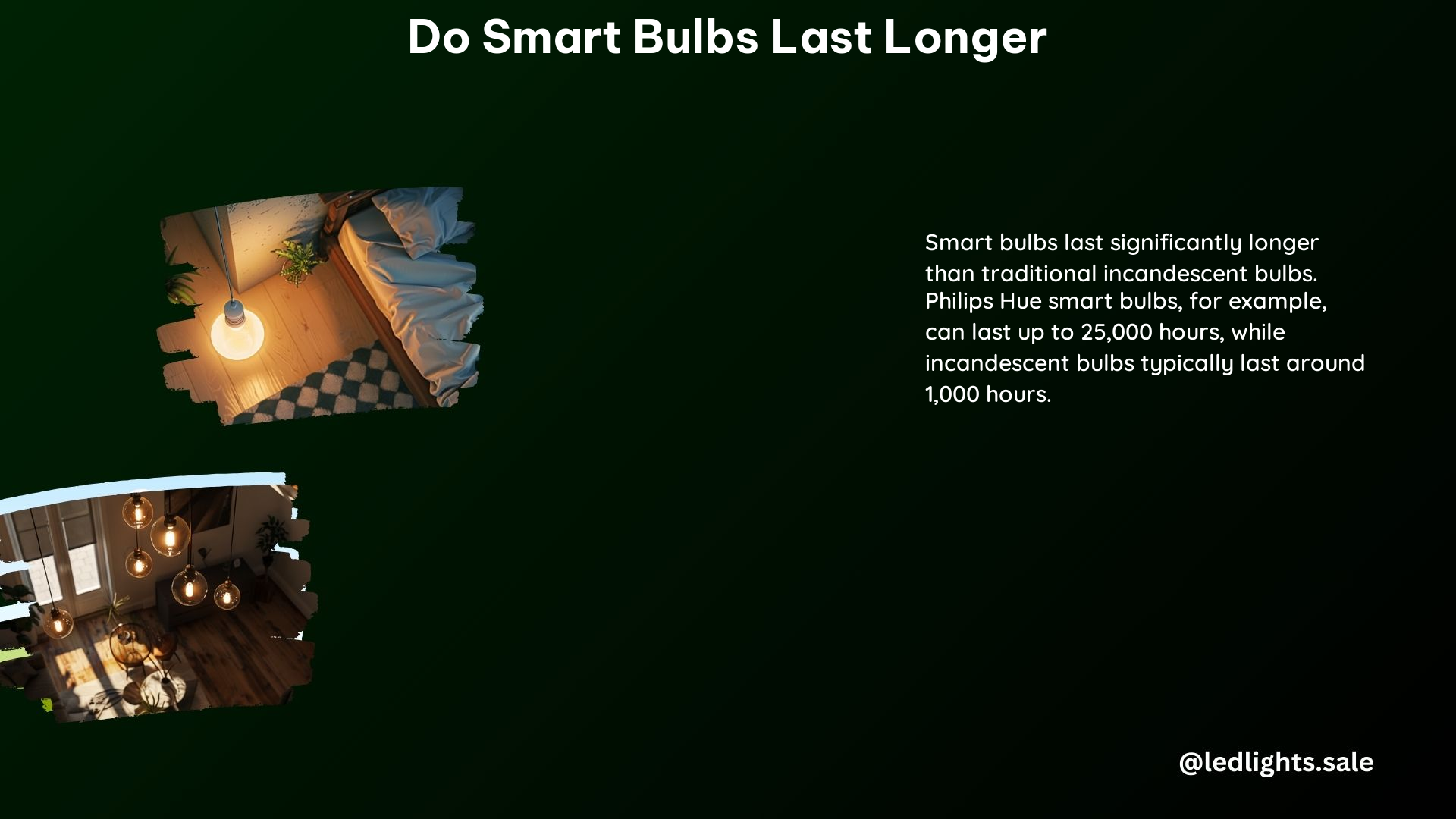Smart bulbs, particularly those using LED technology, are renowned for their extended lifespan compared to traditional incandescent bulbs. The average lifespan of LED smart bulbs ranges from 15,000 to 25,000 hours, which is significantly longer than incandescent bulbs that last around 1,000 to 2,000 hours. This extended lifespan is due to the advanced solid-state lighting technology used in LED bulbs, providing higher energy efficiency and longer durability.
Factors Affecting Lifespan
Several factors can influence the lifespan of smart bulbs:
- Usage Patterns:
- Frequent switching: Turning smart bulbs on and off frequently can reduce their lifespan. Each switching cycle puts stress on the internal components, leading to faster degradation.
- High brightness levels: Operating smart bulbs at maximum brightness for extended periods can generate more heat, which can accelerate the aging process of the bulb’s components.
-
Prolonged continuous usage: Leaving smart bulbs on for long durations without breaks can also contribute to a shorter lifespan.
-
Heat Management:
- Overcrowded fixtures: When smart bulbs are installed in fixtures that are too close together, the lack of airflow and ventilation can hinder heat dissipation, leading to a shorter lifespan.
-
Poor ventilation: Inadequate airflow around the bulbs, either due to the fixture design or the installation location, can trap heat and cause premature failure.
-
Power Stability:
- Unstable power sources: Fluctuations in voltage, current, or power quality can damage the internal electronics of smart bulbs, reducing their lifespan.
-
Voltage spikes or surges: Sudden power surges or voltage spikes can overwhelm the bulb’s circuitry and cause permanent damage.
-
Quality of the Bulb:
- Materials and construction: High-quality smart bulbs with better-engineered components, heat sinks, and overall construction can withstand stress and last longer than lower-quality alternatives.
- Thermal management design: Bulbs with advanced thermal management systems, such as efficient heat sinks or cooling mechanisms, can dissipate heat more effectively and maintain their lifespan.
Extending Lifespan

To maximize the lifespan of smart bulbs, consider the following strategies:
- Minimize Frequent Switching:
- Utilize timers or automation features to reduce the number of manual on/off cycles.
-
Implement motion sensors or presence detection to automatically turn off bulbs when a room is unoccupied.
-
Adjust Brightness and Color Temperature:
- Optimize brightness settings to the minimum required for the task or ambiance, as higher brightness levels generate more heat.
-
Experiment with different color temperature settings, as warmer tones (2700K-3000K) tend to generate less heat than cooler tones (4000K-6500K).
-
Avoid Overcrowding:
- Ensure sufficient spacing between smart bulb fixtures to allow for proper air circulation and heat dissipation.
-
Consider the overall heat load in a room or area and distribute the bulbs accordingly.
-
Regular Cleaning:
- Regularly clean the bulbs and their surrounding fixtures to remove dust, debris, and any obstructions that could impede heat transfer.
-
Gently wipe the bulb surfaces with a soft, dry cloth to maintain optimal light output and heat dissipation.
-
Stable Power Supply:
- Use a reliable and stable power source, such as a dedicated circuit or a power conditioning device, to protect the smart bulbs from voltage fluctuations.
- Install surge protectors or uninterruptible power supply (UPS) units to safeguard the bulbs from sudden power spikes or outages.
Technical Specifications
- Philips Hue Bulbs:
- First-generation Philips Hue bulbs have a rated lifespan of up to 15,000 hours.
-
Second- and third-generation Philips Hue bulbs have an extended lifespan of up to 25,000 hours.
-
Average Lifespan:
- The average lifespan of smart bulbs is approximately 23,000 hours.
-
This translates to around 10 years of life with 6 hours of daily usage.
-
Energy Efficiency:
- Smart bulbs use significantly less power than traditional incandescent bulbs, with some models using up to 80% less power.
- This improved energy efficiency contributes to the extended lifespan of smart bulbs by generating less heat and reducing the strain on the internal components.
